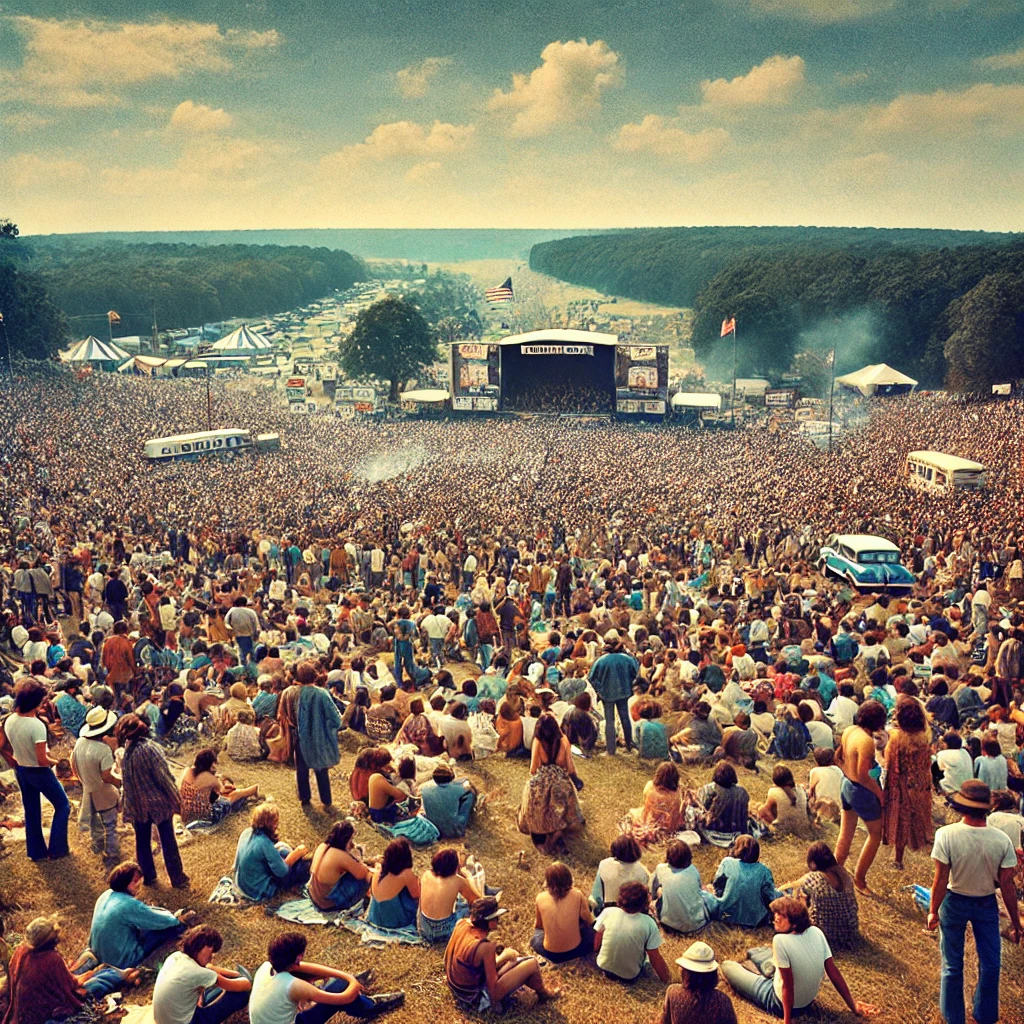Music festivals are a cornerstone of modern culture, where the roar of guitars, the beat of drums, and the energy of thousands of fans come together in a harmonious celebration of music. But long before we had Coachella, Glastonbury, or Burning Man, humanity was already throwing epic music festivals—albeit with a bit more togas and a little less neon face paint. Let’s dive deep into the historical origins of music festivals, where religious rituals, cultural celebrations, and communal gatherings gave birth to the events we now know and love.
The Ancient Greeks: The First Rock Stars (Minus the Guitars)
Long before amphitheaters filled with cheering fans, ancient Greece was hosting some of the first large-scale music events in history. The Pythian Games, held in Delphi as early as the 6th century BC, were a precursor to modern music festivals. While these games celebrated athletic prowess, they were also a venue for musical competitions—think of it as the ancient equivalent of Battle of the Bands, but with lyres and flutes instead of electric guitars.
The Pythian Games were dedicated to Apollo, the god of music, and featured performances that honored the gods. Musicians, poets, and singers from all across the Greek world would come to compete, and these gatherings were as much about the music as they were about the spiritual and communal aspects of Greek society.
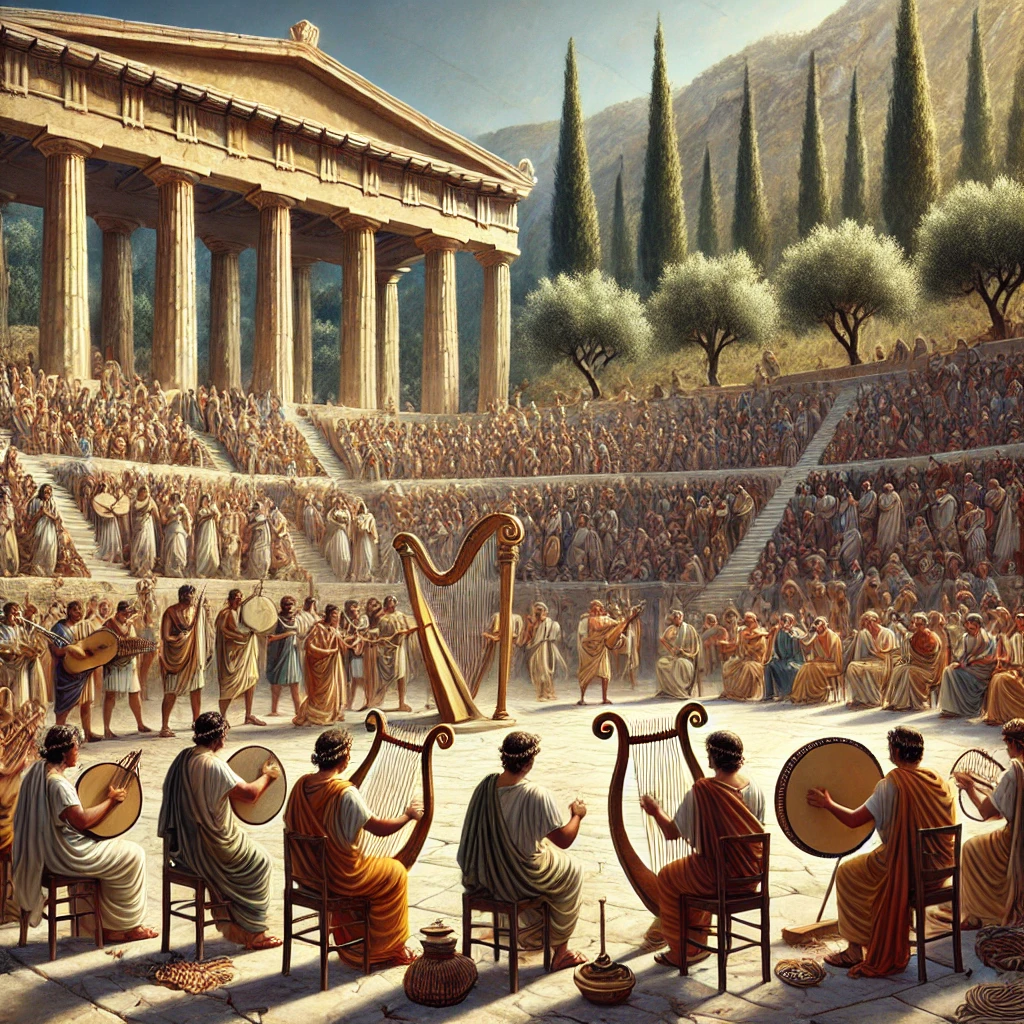
Ancient Rome: Festivals for the Gods (and Partying Hard)
Not to be outdone by their Greek neighbors, the Romans loved a good festival—and many of their celebrations were packed with music. Perhaps the most significant was the Ludi Romani, or Roman Games, which were originally religious in nature. By the time of the late Republic and the Empire, these festivals had evolved into massive public spectacles featuring chariot races, gladiatorial games, and of course, music.
The Ludi Romani, held annually to honor the gods, included everything from theatrical performances to large orchestras that played music during the festivities. These gatherings were a way for the Romans to display their wealth, power, and piety, and, much like today’s festivals, they offered the perfect opportunity to enjoy live music in a public space.
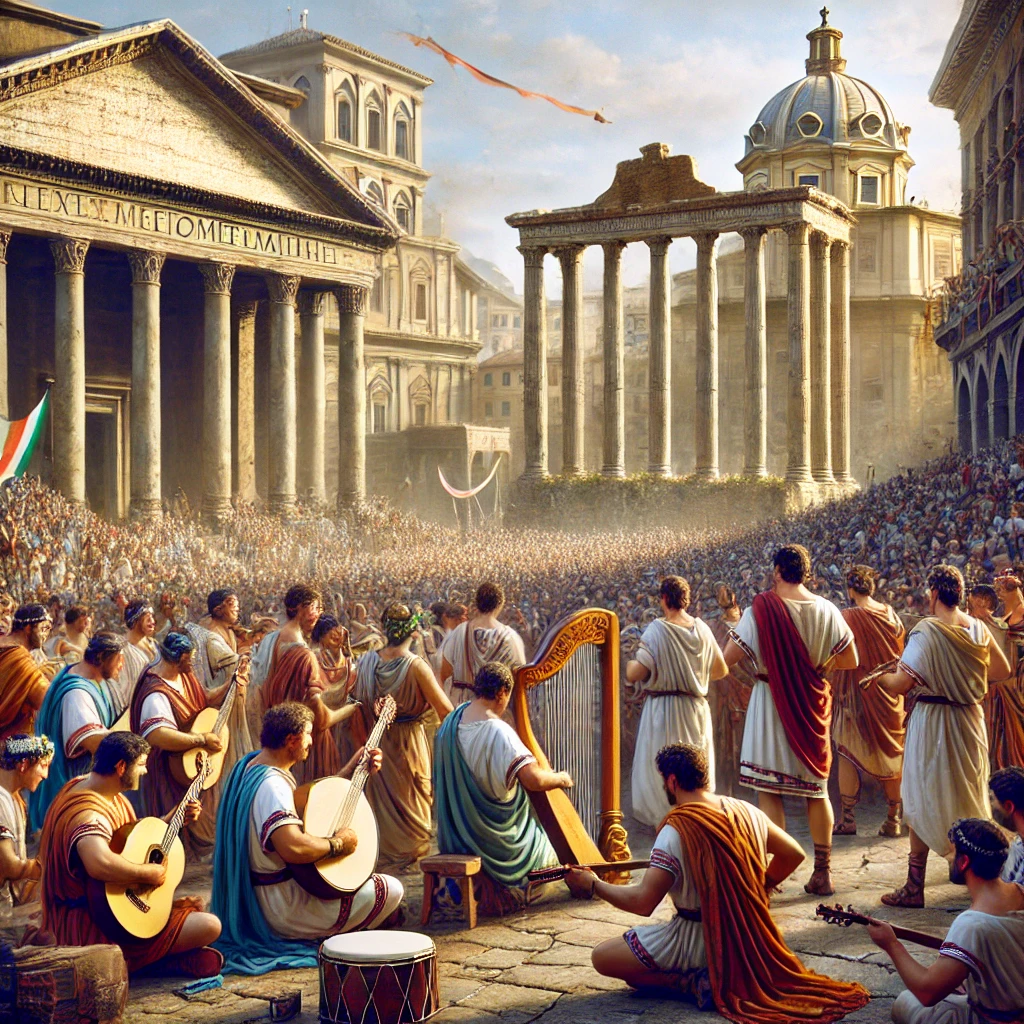

Medieval and Renaissance Festivals: Lutes, Choirs, and Royal Courts
Fast forward a few centuries, and you’ll find that music festivals were still thriving, albeit in a different form. During the Medieval and Renaissance periods, music became more associated with royal courts, churches, and civic celebrations.
Renaissance fairs in particular were hotbeds for music. Think of a Renaissance festival not just as a place to see jousting and turkey legs but as a living, breathing concert hall where minstrels played lutes and harps, choirs sang in harmony, and noble patrons financed the best musicians to showcase their talents.
Many cities across Europe, from Florence to Paris, hosted grand festivals that featured both sacred and secular music. These events helped to spread new styles of music, from Gregorian chants to the polyphonic compositions of early Renaissance composers like Guillaume Dufay. In fact, you could argue that Renaissance festivals laid the groundwork for modern-day music extravaganzas by focusing on both the music itself and the culture surrounding it.
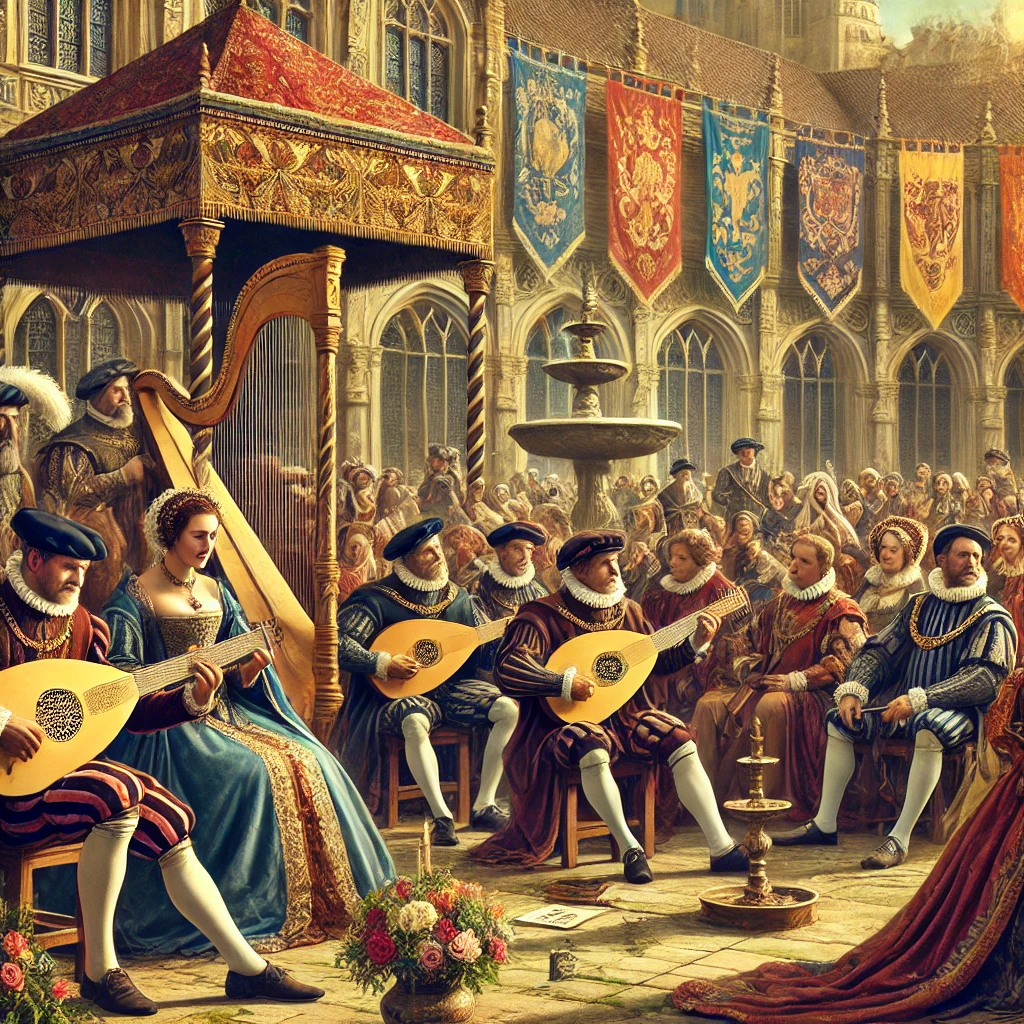

Native American Gatherings: Ceremonial Sounds and Communal Rhythms
Across the ocean, music festivals were also an integral part of indigenous cultures. Native American tribes held gatherings that combined music, dance, and spirituality long before the concept of Woodstock entered the world stage.
These gatherings were deeply rooted in the community and tradition. Music wasn’t just entertainment; it was a form of communication, celebration, and reverence. For example, the Sun Dance of the Plains Indians was a religious ceremony that involved music, chanting, and dance, designed to offer prayers to the Great Spirit. These events could last for days and were an important way to bring together tribes in a shared spiritual and cultural experience.
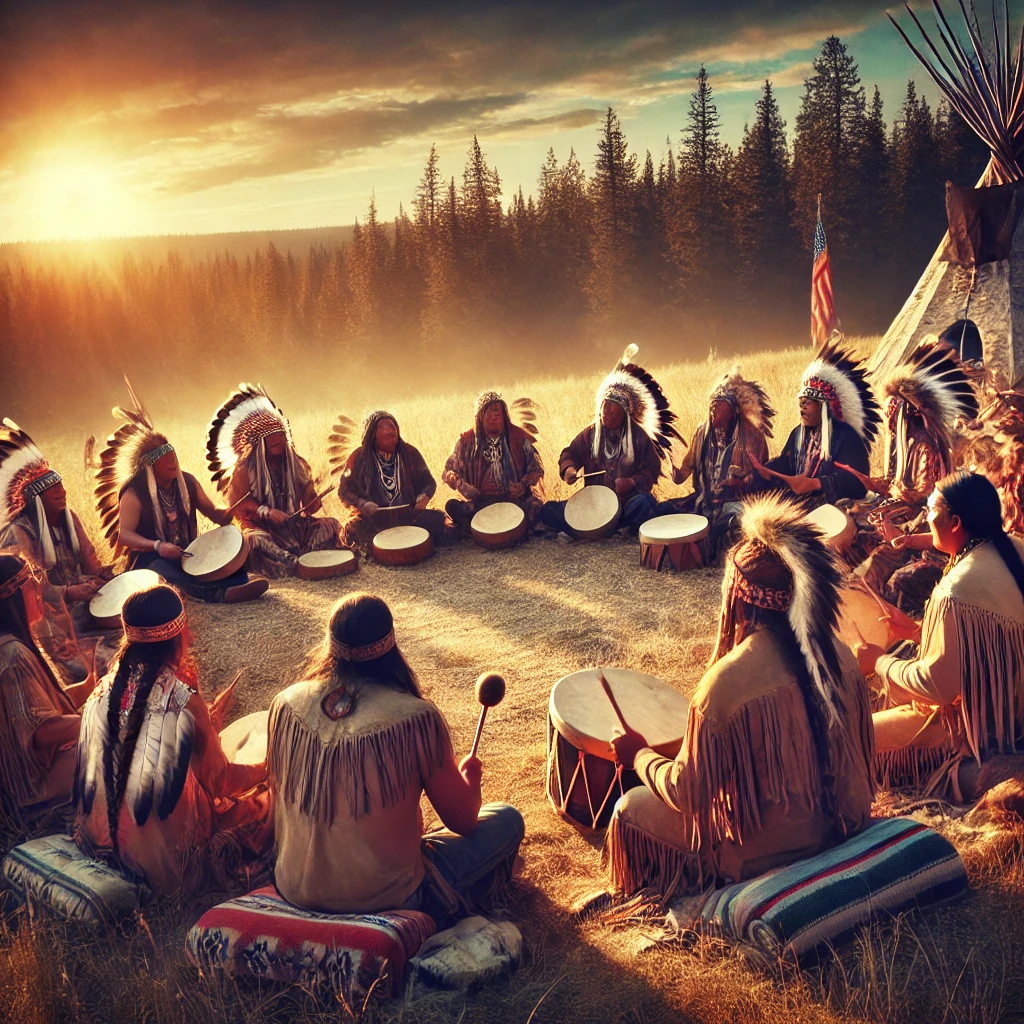

Modern Echoes of Ancient Festivals
It’s fascinating to consider how music festivals have evolved from religious ceremonies and royal courts into today’s mega-events that draw hundreds of thousands of fans. While the technologies, instruments, and venues have changed dramatically, the underlying human desire to come together and celebrate through music has remained a constant.
Today’s festivals, whether they’re showcasing EDM in the Nevada desert or classical symphonies in European concert halls, are part of a long tradition that stretches back thousands of years. From the sacred to the secular, from small communal gatherings to massive international events, music festivals have always been about more than just the music—they’re about connection, celebration, and the shared experience of something magical.
Conclusion
The historical roots of music festivals run deep. From ancient Greek competitions in honor of the gods to Native American spiritual gatherings, music has always been a way for humanity to come together. Today’s festivals may look different, but the spirit remains the same. So, next time you’re at a festival swaying to your favorite tunes, remember—you’re part of a tradition that spans millennia!


